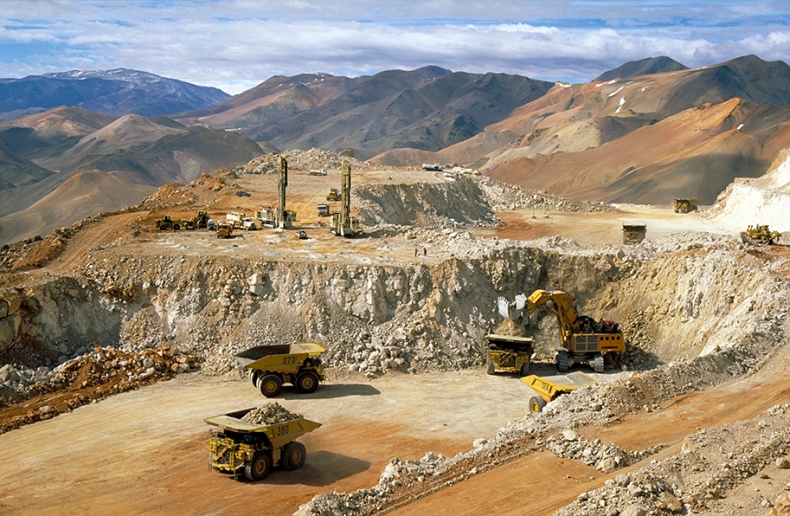Barrick Gold
“Veladero mine” by Barrick Gold
The world’s largest gold mining company, Barrick Gold, has also been embroiled in numerous conflicts. Pick a continent and you will find a Barrick-run mine that has ravaged the environment and spurred social tension. Here is a sample of the headlines:
“Human Rights Report Confirms Rapes by Security Guards at Barrick Mine in Papua New Guinea”
“Canadian mining giant Barrick Gold fired whistleblower. Then it spilled cyanide into five rivers”
“Deadly clash at Peru protest over Barrick gold mine”
Since 2006, security and police paid by Barrick have killed at least 65 people at, or in, close proximity, to the company’s North Mara gold mine in Tanzania. Hundreds more have been severely injured. Most of the victims were impoverished villagers who scratch rocks for tiny bits of gold and who mined these territories prior to Barrick’s arrival.
In 2016, a Tanzanian tribunal ruled Barrick organized a “sophisticated scheme of tax evasion” in the East African country. While its North Mara delivered over US$400-million in profit to shareholders between 2010 and 2013, Barrick failed to pay any corporate taxes, cheating the country out of $41.25 million.
In 2009, Norway’s Ministry of Finance announced the country’s pension fund would no longer invest in Barrick. A 2008 Censored News poll found Barrick to be the fourth worst company in the world.
The Toronto company has aggressively opposed moves to withhold diplomatic and financial support to Canadian companies found responsible for significant abuses abroad. In 2008 Barrick opposed the recommendations of a business/civil society mining roundtable launched by the previous Liberal government, and two years later the company registered seven lobbyists to block Liberal MP John McKay’s private members Bill C-300 (An Act Respecting Corporate Accountability for the Activities of Mining, Oil or Gas Corporations in Developing Countries).
Knowing the precarious nature of its business model, Barrick has spent a great deal of energy developing influence with politicians. Former US President George H. Bush became a board member after leaving office. So did Prime Minister Brian Mulroney. When asked why he appointed Mulroney to his board, Peter Munk, chairman and founder of Barrick Gold, told Peter C. Newman: “He has great contacts. He knows every dictator in the world on a first name basis.”
The company gained important diplomatic support for its controversial projects during a November 2007 visit to Tanzania, where Prime Minister Stephen Harper met representatives of Barrick. Days before meeting with Harper, Barrick declared a strike at one of its Tanzanian mines illegal and was looking to replace a thousand striking miners.
During a 2007 trip to Chile, Harper visited their Chilean office and said: “Barrick follows Canadian standards of corporate social responsibility.” Harper was greeted with signs from those opposed to its highly controversial Pascua Lama operations stating “Harper go home” and “Canada: What’s HARPERing here?”
Barrick is part of the regional corporate lobby group ‘the Canadian Council of the Americas,’ which organizes talks, comments in the media, and publishes reports, such as the 2015 “Canada in the Hemisphere Perspective Paper.”
Barrick is also represented on the Senate of the Canadian International Council.


